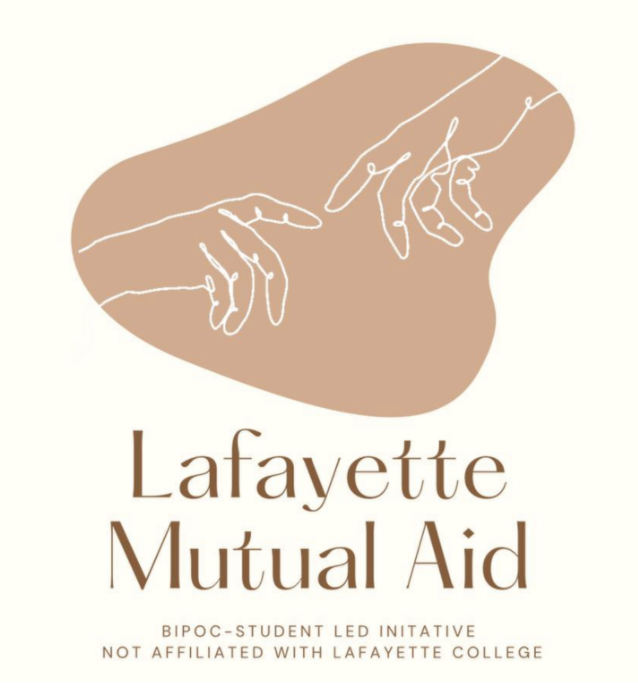Lafayette Mutual Aid (LMA) is a student-led movement with two aims: to provide direct assistance to Black and Indigenous students and Lehigh Valley residents, and to shift the ideology of giving toward the direct and immediate assistance of fellow community members.
Established by Savanna Toure ’21 and Natalie Beckford ’24 last fall, LMA is a part of the broader Dear Lafayette College coalition, a platform dedicated to fighting systematic racism and discrimination on College Hill.
Mutual aid, the voluntary exchange of resources and services between individuals for the betterment of the community, has a long legacy specifically within Black communities, according to Fatimata Cham ’23, a member of the LMA team.
“For a lot of people within the BIPOC [Black, Indigenous and People of Color] community and Black people in general, mutual aid has been something that has been done for years…to protect one another,” Cham said.
“Mutual aid has always existed, it is just that people have not seen it because they didn’t need to,” added LMA team member Milena Berestko ’22.
Despite its rich history, however, sustained mutual aid is a relatively new concept on Lafayette’s campus.
LMA is changing that. The primary objectives of the organization are to address housing, food, material and financial insecurity within the BIPOC community both on campus and in Easton through the redistribution of funds, according to their website.
“We have Venmo, Cash App and a GoFundMe,” said Flor de María Cáceres ’22, a member of the Lafayette Mutual aid team. “We mainly raise money through Venmo because it comes largely from students who are active on that app. We are actively fundraising. Our goal right now is $5,000.”
Students and community members can request or offer financial support by filling out forms on Lafayette Mutual Aid’s website.
The money is then distributed directly from the pool of donations to an individual seeking assistance.
LMA is not affiliated with the college. Cáceres added that, if it were, that would “require us to work within the limitations of the institutions, and that is what we fear for the most part.”
Cham explained that the mutual aid network will also assist in broadly addressing systematic racism on campus.
“In order for us to dismantle all these structures that negatively impact the BIPOC community, we have to figure out what the BIPOC community needs and what steps we can take to further our liberation as a community,” Cham said.
For Berestko, the emphasis on community is important for understanding mutual aid.
“When it comes to my own philosophy, I do not feel like I am doing well enough if my immediate community is not doing well,” Berestko said. “I think we are all interconnected, so if I see many issues in this immediate community, then I do not think that I, myself, can say that I am being successful.”
“Many people believe that it is not people’s role to help other people,” she continued. “They think it is the government’s role to support people who need help. And we know that we live in a society with many failed systems, so if you just blame everything on the government and don’t do anything yourself, then you can be sure that no change will take place. You can be sure that there will be inequality, that there will be people in need, because you, yourself, are not doing anything to help the cause.”
Outside of monetary assistance, LMA provides many other avenues for the Lafayette community to assist one another, including providing transportation or donating food to the Pard Pantry, according to Cáceres.
“At [mutual aid’s] core, it is us just being there for each other and asking each other what we specifically need,” Cham said.
However, Cáceres emphasized that LMA is working under the constraint of being solely donation-based.
“We want to raise a good amount of funds before we start distributing anything that we can offer. That way, people do not fall into the illusion that we can offer them everything because we ourselves have our own limitations and restrictions,” Cáceres said. “We want to make sure we are being as transparent as possible with everyone, if we can afford it then perfect, if we can’t we will still find a way to help you out it just might take a little longer.”
While LMA remains focused on continually raising money, they are also planning more structured donation-based events and looking for other college organizations to partner with.
“We would love to see other organizations reach out and help us plan events, or if they’re looking for good things to put their money towards, Laf Mutual Aid is one thing on campus to help with that,” Cham added.

























































































































